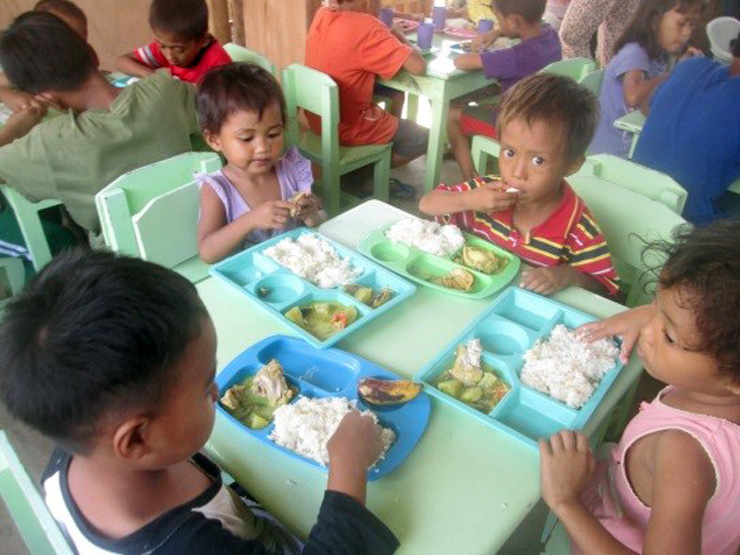“Peace where are you?” This is the title of a famous play that was performed in Mindanao in the eighties. It presents a story of love in the context of traditions, powerful groups and people. Today I often repeat to myself the same question: Peace where are you?”
A few days ago a military of the civic relations of Zamboanga approached me and asked many questions. This is part of their services to get the opinion of the people in Mindanao, especially of some leaders. One of the questions was: “What do you think about the Martial Law in Mindanao?” I was hesitant to give an answer because there are many aspects to consider. As an Italian priest who has been in Mindanao since 1977 and have done many things to promote peace especially through the Silsilah Dialogue Movement and some responsibilities to promote inter religious dialogue through the Catholic Bishops’ Conference of the Philippines , I recalled many events in my life, including the time when I was invited by the Moro National Liberation Front ( MNLF) to be their negotiator and going to the forests of Siocon, in Zamboanga del Norte ( Mindanao) to meet them and to find ways of peace with the government during the time of the martial Law of president Marcos.
The recent pastoral letter of the CBCP entitled “Rejoice and be Glad” was fresh in my mind when the question was addressed to me. That pastoral letter is courageous and true. The Bishops ended this pastoral letter inviting us to have three days of fasting and prayer for peace.
Guided by this background and other considerations related to many forms of violence in Mindanao and alarming news coming from those who are not happy about some recent issues going on in Mindanao, including the Bangsamoro Basic Law agreement which is not welcomed by some groups, even among those who fought for this, and the recent siege in Marawi with alarming news of groups who are still working “ in silence” to continue the initial struggle that they started in Marawi as a form of ideology and strategy. These and other considerations brought me to say with pain in my heart, to the military of civic relations who interviewed me: “Yes, maybe, it is still needed, the Martial Law in Mindanao”.
I know that many good and honest leaders among Christians, Muslims and indigenous people in Mindanao today are struggling to balance events and to help to build peace as a “possible dream” in Mindanao. We do not have to lose hope at the same time we are invited to reflect on the cause of violence and each one, especially those in power, have to consider the “cry of our people”, especially of the children who are the future generation of Mindanao.
In this connection, Silsilah is doing all possible things to be close to many poor communities in the area of Zamboanga and invite other Silsilah members who are part of the Silsilah Forum in different places of Mindanao to reach out to the poor, especially to the children. With this spirit we have opened different kindergarten schools in the Zamboanga area and we have given formation to three hundred teachers of the Department of Education (DepEd) of Zamboanga to introduce the program of TULAY BATA for dialogue and peace. It is a program to educate children to peace presenting at the level of children the CULTURE OF DIALOGUE, PATH TO PEACE.
One program that Silsilah started long ago and now we are giving more attention in different poor areas of Zamboanga is the BUKAS PUSO (open heart) program that is a weekly activity in some poor areas where Silsilah is present for many poor children, Muslims and Christians. They are invited to spend a few hours together with some basic educational and recreational activities that culminate in a feeding program for them. With a broken heart I saw sometimes children coming to the BUKAS PUSO activity telling me : “ Father, I come because this is the time when I can eat a lot”. Sometimes also I see children who do not finish all the food they receive because they bring home some food for the other brothers and sisters.
How can we make these children understand that poverty and violence is a part of a system of violence and corruption of some at the expense of many who suffer in Mindanao?
I believe that we do not have to get discouraged in this situation. For this reason Silsilah this year, in preparation of its thirty fifth anniversary has decided to be guided by the theme: “Silsilah, a sign of hope in the midst of divisions and conflicts”.
It is not too late, but we have to work hard putting apart personal and group interests and ambitions to give hope to the children and to all. Yes, many are in need of food, but especially of hope, love, justice and compassion.
Fr. Sebastiano D’Ambra, PIME
Founder of Silsilah Dialogue Movement


